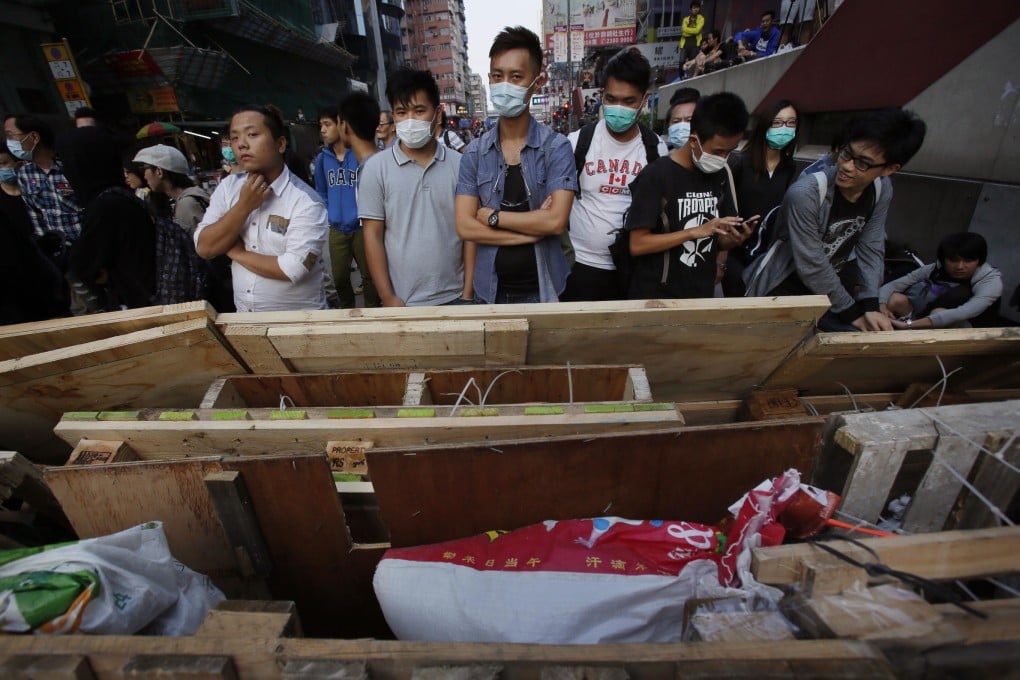Protesters form new blockades in Mong Kok after night of chaotic clashes with police
Twenty-six people arrested, including foreign journalist, and more than 60 reportedly injured on both sides during chaos

Protesters fighting for Hong Kong democracy formed new barricades and set up other obstacles on Saturday as they re-occupied some streets in Mong Kok, where violent clashes overnight between crowds and officers led to the arrests of at least 26 people.
Watch: Violent clashes in Mong Kok lead to arrests and injuries overnight
Hong Kong Police Commissioner Andy Tsang Wai-hung broke a prolonged silence on the protests today, appearing before journalists to angrily condemn the recent events.
"Police strongly condemn those who participated in the unlawful assembly, charged police cordons and illegally occupied major thoroughfares in Mong Kok earlier this morning and last night. Such behaviours are neither peaceful nor non-violent," said Tsang, who last made a public statement when the civil disobedience movement started.
"The police have been extremely tolerant of the unlawful acts of the demonstrators in the past two to three weeks. We did this in the hope that they can calm down and express their views in an otherwise peaceful, rational and lawful manner. Unfortunately these protesters chose to carry on with their unlawful acts ... which are even more radical or violent.